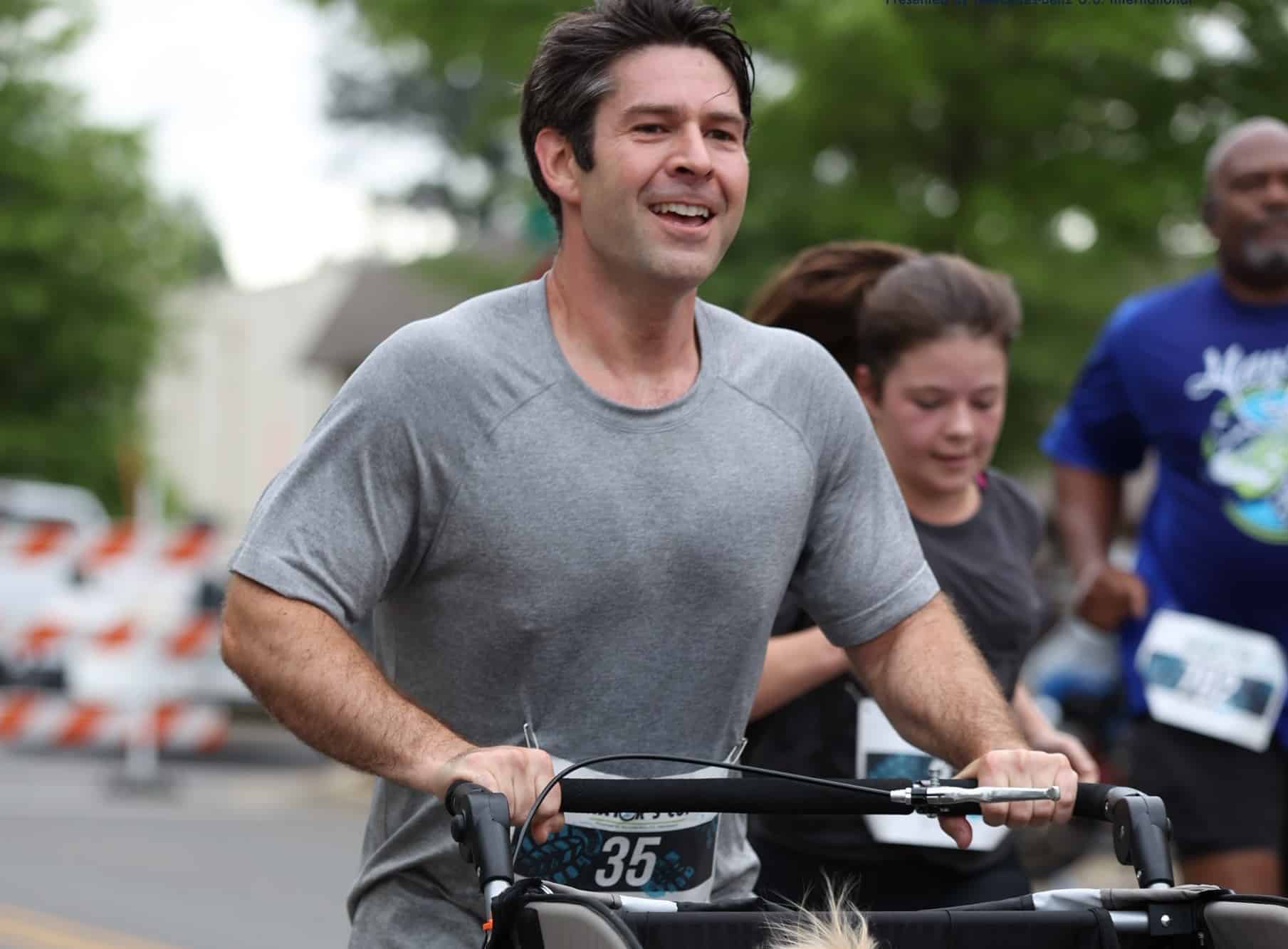The Connection Between Trail Running and Stress Relief: Exploring Nature’s Role in Mindful Exercise
As a UESCA certified running coach with extensive experience in the field, I’ve seen firsthand how trail running can be a powerful tool for stress relief. The act of running itself, particularly in natural settings, has a therapeutic effect on the mind and body. The rhythmic cadence of one’s footsteps and the immersive sensory experience of nature work in harmony to foster a meditative state. This form of moving meditation not only provides the physical benefits of exercise but also promotes mental clarity and emotional calmness.
Through consistent practice, trail running elevates the exercise experience beyond the physical realm. It allows individuals to connect with their surroundings, encourages mindfulness, and facilitates a unique convergence of focus and relaxation. This blend of physical activity and mindful awareness creates an ideal environment for stress reduction. By integrating trail running into a regular fitness routine, it becomes an effective method for managing daily stress and enhancing overall well-being.
Stress and Its Impacts
Before diving into the connection between trail running and stress relief, it’s essential to understand how stress affects our bodies and minds. Recognizing the science of stress and its impacts can help us manage it through activities like running.
The Psychology of Stress
Stress triggers a cascade of hormonal responses in the body, notably the release of cortisol, known as the “stress hormone.” My experience as a running coach has shown me that this hormonal surge is part of the body’s natural fight or flight response, which can be beneficial in short bursts but detrimental when sustained. This prolonged exposure can lead to chronic anxiety and depression, conditions I’ve seen runners face time and time again.

Physical and Mental Health Consequences
Physical Health:
- Hormone release: Extended periods of stress can lead to a continuous release of cortisol, potentially causing systemic inflammation.
- Health risks: This state of inflammation can increase the risk of chronic diseases like hypertension and heart disease.
Mental Health:
- Anxiety and depression: Chronic stress is linked to higher risks of developing anxiety disorders and depression.
- Cognitive function: Sustained stress can impair concentration and memory, which I’ve observed in runners struggling to maintain focus.
By understanding these impacts, we can better appreciate how trail running serves as a tool for stress relief and mental clarity.
Trail Running as a Form of Exercise and Stress Relief

As a UESCA certified running coach, I’ve seen firsthand the numerous benefits of trail running, both for the mind and body. Ensuring a blend of natural scenery with impactful aerobic activity is key to stress relief and improved well-being.
Benefits of Running in Nature
Trail running immerses you in the calming presence of nature, which can greatly enhance your mental state. With each run, you not only engage in vigorous physical activity but also connect with the environment. This connection has been demonstrated to help reduce symptoms of anxiety and depression. Here’s how nature boosts your run:
- Visual Stimulation: Nature’s aesthetics can improve mood and relaxation.
- Cleaner Air: Less pollution compared to urban settings aids your respiratory health.
Aerobic Activity and Stress Management
Aerobic activity, like trail running, effectively promotes the production of endorphins, also known as the body’s natural painkillers and mood elevators. Here are some specifics:
- Intensity: Trail running varies in intensity, which can influence the level of endorphin release.
- Duration: Longer runs tend to increase endorphin production for enhanced stress management.
Trail running as a form of exercise extends beyond just physical fitness; it’s a gateway to serenity and a balanced psyche. Through consistent practice, the natural elements of trail running can serve almost meditatively, fostering a profound sense of peace.
Meditative Practices in Motion

Incorporating meditative elements into running transforms the physical activity into a more profound experience. Through focused breathing and mindfulness, running can become a dynamic form of meditation that encourages mental clarity and stress relief.
Meditation Through Running
I teach my runners that each step can be a form of meditation. It’s about harmonizing your breath with your movement to cultivate a mindfulness practice while in motion. Start by paying attention to the rhythm of your feet hitting the trail, and synchronize your breathing to this pace. Aim to take deep, measured breaths to maintain a sense of calm and focus.
- Breath cycle during a run: Try inhaling for 3 steps and exhaling for 2 to keep your breathing regular and centered.
- Mindfulness technique: Notice the sensation of the air on your skin, the sound of your environment, and the strength in your body as you move.
Yoga and Tai Chi: Complementary Practices
Yoga and Tai Chi are excellent complements to running due to their emphasis on controlled breathing and deliberate, fluid motion. Practicing these disciplines can improve flexibility and balance, which are beneficial for runners. Moreover, both incorporate meditative components that enhance mental well-being.
- Yoga benefits for runners: Improves flexibility, helps in injury prevention, and aids in post-run recovery.
- Tai Chi advantages: Increases balance, strengthens the mind-body connection, and reduces stress through gentle movements.
Here are straightforward practices I often recommend:
- Yoga positions: Post-run, engage in poses like Downward Dog or Pigeon to stretch tight muscles.
- Tai Chi movements: Perform ‘Waving Hands Like Clouds’ to unwind the mind after a vigorous run.
By integrating meditation, mindfulness, yoga, and tai chi into your running routine, you not only boost your physical stamina but also achieve greater mental resilience and focus.
The Science of Exercise and Stress Relief

As a UESCA certified running coach, I’ve seen firsthand how trail running can significantly diminish stress levels. My extensive experience with runners has showcased the remarkable connection between physical exertion on the trails and the subsequent mental clarity and stress reduction.
The Role of Endorphins
When we engage in trail running, our bodies produce endorphins, also known as feel-good hormones.
These natural painkillers are released during prolonged, continuous exercise, such as running, and are responsible for what is often termed as the runner’s high. This euphoric sensation is marked by an increase in positive mood and a reduction in the perception of pain.
Production of Endorphins During Exercise:
- Pre-exercise: Baseline endorphin levels
- During exercise: Significant endorphin release
- Post-exercise: Elevated endorphin levels contribute to mood improvement
The increase in endorphins is a direct result of sustained physical activity, as demonstrated by the table above.
Psychological Benefits of Physical Activity
The psychological influence of physical activity extends beyond the biochemical. Running, specifically in the serenity of nature, provides a meditative effect on the mind. This form of moving meditation allows for a focus on breathing and stride, which in turn facilitates a mindfulness state, pushing aside stress-inducing thoughts.
Psychological Impact of Trail Running:
- Focus: Improved concentration on the present moment
- Mindfulness: Engagement in a meditative state
- Stress Relief: Decreased anxiety and stress through psychological detachment and relaxation
Regular engagement in trail running can lead to long-term psychological resilience against stress, fostering a pervasive sense of well-being.
Incorporating Trail Running Into Your Life

Adopting trail running as part of your regular exercise routine can be a transformative experience, offering both physical and psychological benefits. Let’s look at how you can begin and sustain this rewarding practice.
Getting Started with Trail Running
When I first started trail running, I focused on setting achievable goals, gradually increasing my fitness level. For those new to the sport:
- Select appropriate trails: Begin with flatter, shorter trails and gradually progress to more challenging terrain.
- Choose the right gear: Invest in trail-specific running shoes and dress for the weather.
| Week | Distance (miles) | Trail Difficulty |
|---|---|---|
| 1-2 | 1-3 | Easy |
| 3-4 | 3-5 | Moderate |
| 5-6 | 5-7 | Challenging |
Starting with a group or finding a community can provide support and motivation. Local running clubs are often a great place to meet fellow trail enthusiasts.
Maintaining Motivation and Commitment
Maintaining motivation is critical. Here’s what I advise:
- Set specific goals: Whether it’s running a certain distance or entering a trail race, having a clear target can help maintain focus.
- Keep a running diary: Tracking progress and reflecting on achievements can bolster commitment.
| Goal Type | Example |
|---|---|
| Short-term | Complete a 5K trail run |
| Medium-term | Run a new trail each month |
| Long-term | Participate in a trail race |
Consistency in training is key. However, listen to your body and adjust your running routine to prevent overtraining. Remember, the goal is not only to improve your fitness level but also to enjoy the process and connect with nature.
By applying these strategies, you can build a sustainable trail running practice that enriches your life and enhances your well-being.






